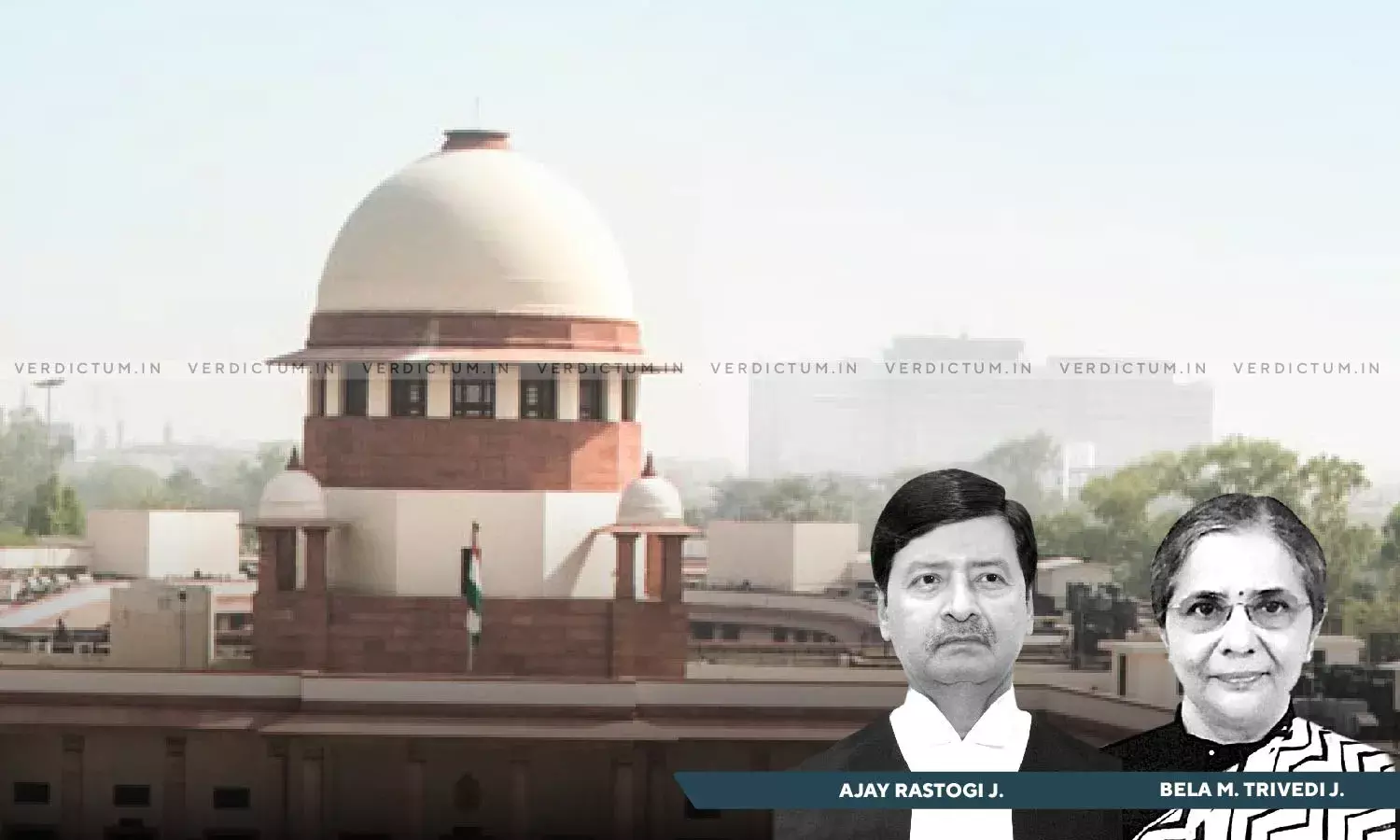Punjab Land Revenue Act| Jurisdiction Of Revenue Officer In Cases Of Partition Is Concurrent With That Of Civil Court- SC

The Supreme Court has held that under the Punjab Land Revenue Act, 1887, the jurisdiction of the Revenue Officer in cases of partition is concurrent with that of the Civil Court.
The Court further held that merely because the instrument of partition was not drawn, it could not be said that the partition was not completed or that the joint status of the parties was not severed.
The two-Judge Bench comprising Justice Ajay Rastogi and Justice Bela M. Trivedi observed, “… the jurisdiction of the Revenue Officer in the cases of partition is concurrent with that of the civil court. Therefore, for the purpose of interpreting Section 121 of the Land Revenue Act, the Court can safely draw an analogy from the provisions contained in Order XX, Rule 18 C.P.C. which pertain to the procedure to be followed on the passing of the decree for the partition of the property. … when a decision is taken by the Revenue Officer under Section 118 on the question as to the property to be divided and the mode of partition, the rights and status of the parties stand decided and the partition is deemed to have completed. At this stage, such decision is required to be treated as the “decree”.”
The Bench said that the consequential action of preparing the instrument of partition as contemplated in Section 121 of the Land Revenue Act would be the only ministerial or administrative act to be carried out to completely dispose of the partition case instituted before the Revenue Officer.
Senior Advocate Narendra Hooda appeared on behalf of the appellants while Senior Advocate Rajiv Bhalla appeared on behalf of the respondent.
In this case, a batch of two appeals arose out of the judgment passed by the Punjab and Haryana High Court, whereby it allowed the appeal of the respondent and decreed the suit filed by him, seeking a decree for the possession of the lands, claiming the right of pre-emption against the appellants. The appellants and respondent were substituted as the legal heirs of the original defendant and original plaintiff respectively before the Apex Court.
The Supreme Court in view of the facts and circumstances of the case noted, “In our opinion, it is difficult to subscribe the view taken by the High Court in the impugned order that since no instrument of partition was drawn on the date of passing of the decree by the trial court, the joint status of the parties had not come to an end. … it clearly emerges that as per Section 118 of the Land Revenue Act, when there is a question as to the property to be divided, or the mode of making a partition, the Revenue Officer after such inquiry as he deems necessary, is required to record an order stating his decision on the question and record his reasons for the decision.”
The Court further noted that once the decision on the property to be divided and on the mode of partition is taken by the Revenue Officer under Section 118, the joint status of the parties would stand severed on the date of such decision, subject to the decision in an appeal if any preferred by the party.
“Just as in case of a decree in civil suit, the adjudication conclusively decides the rights of the parties with regard to the matter in controversy, however the decree would be preliminary when further proceedings have to be taken before the suit can be completely disposed of. In the same way, when the decision is taken by the Revenue Officer under Section 118, the partition would stand completed, the joint status of the parties would stand severed and would remain no more joint, after the period of limitation prescribed under the Act”, asserted the Court.
The Court also asserted that the further proceeding to draw an instrument of partition would be only an executory or ministerial work to be carried out to completely dispose of the partition case. The Court, therefore, held that the High Court grossly erred in misinterpreting the provisions of the Punjab Pre-emption Act and of the Land Revenue Act and that the Trial Court’s decision was correct.
Accordingly, the Court allowed the appeals and set aside the judgment of the High Court.
Cause Title- Jhabbar Singh (Deceased) through Legal Heirs & Ors. v. Jagtar Singh


